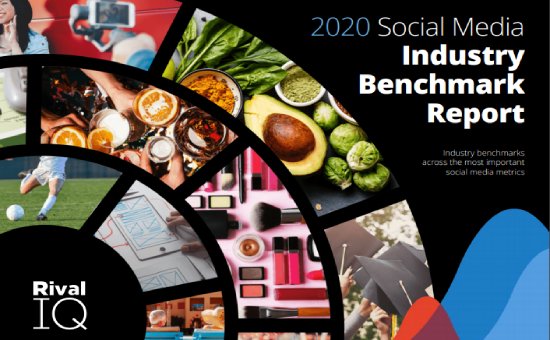The empowered consumer, The key to deeper consumer relationships: reducing the noise around decision-making | Accenture
Artificial Intelligence |
Introduction
In the final quarter of 2023, 74% of consumers abandoned purchases due to feeling overwhelmed, according to Accenture’s Consumer Research 2024. Despite companies’ efforts to prioritize customer-centricity and personalized experiences in recent years, 71% of people report seeing no improvement—or even an increase—in the time and effort required to make purchase decisions.
It’s understandable why. Today’s consumers are bombarded with countless choices, messages, ads, and claims. Recommendations from friends, family, influencers, algorithms, and apps only add to the confusion, making it harder for people to feel confident in their purchase decisions. Surprisingly, this challenge spans both small purchases like moisturizers and big-ticket items like washing machines.
However, there’s promising news for both consumers and the companies serving them. New AI tools are emerging that can help businesses deliver hyper-personalized experiences, cutting through the noise and simplifying decision-making, which in turn strengthens customer loyalty.
Consumers are ready for this change. Our research suggests that in the next two years, consumers will increasingly adopt generative AI-powered advisors to ease their purchasing workload. Already, more than half (51%) of those surveyed are open to using conversational AI solutions. This shift is likely to trigger the most significant rethinking of consumer behavior in decades. The key question is how consumer-facing companies can best leverage technology to be present when decisions are made and make the experience smoother. Those who simplify the decision-making process for consumers will foster deeper loyalty, leaving their competitors behind.

Shaping the ultimate in consumer empowerment
Unlike previous tech-driven tools, generative AI empowers companies to understand each individual consumer on a level previously unattainable, capturing the nuances that influence every choice. With this detailed, life-centric insight, companies can view consumers as dynamic individuals rather than just a series of transactions, enabling them to create uniquely personal experiences that truly resonate.
Search plays a pivotal role in how consumers begin their purchasing journey. Increasingly, people are searching based on their needs rather than just solutions. It’s the difference between searching for “this item” versus “how to solve this problem,” or “a lasagna recipe” versus “what can I cook for eight people with these dietary preferences?” Generative AI is transforming basic searches into more nuanced, semantic ones, empowering consumers to make more informed decisions.
As search becomes more transparent, companies face the challenge of determining the best way to engage in this new landscape. To appear in semantic search results, companies must allow third-party generative AI-powered tools access to their website’s product details. For effective semantic searches on their own channels, businesses will need to develop data sets that go beyond mere product attributes, incorporating an understanding of the contexts in which a product might be the ideal solution.
Every purchase decision is both personal and situational, requiring companies to understand what consumers need and how they prefer to engage. This means recognizing everything from their favored channels and formats to the daily factors that influence their purchase decisions. Depending on the situation, a consumer might want a quick, no-fuss purchase, while in other cases, they might prefer to spend more time considering their options. In different contexts, they may choose to browse independently, seek expert advice, or even delegate the decision-making entirely.

One example of how generative AI can ease consumer burdens is by enhancing search transparency. Imagine a consumer looking for a specific brand and style of jeans available from multiple retailers. A generative AI-powered search could identify that this consumer typically prioritizes price when making a purchase decision. It would then highlight the most affordable option, eliminating the need for the consumer to sift through countless search results. In another scenario, the AI could recognize that the consumer usually values fast delivery, an easy return process, or prefers shopping at a local brick-and-mortar store. The search results would then emphasize the best option based on these preferences. Additionally, the AI could learn when and where a consumer’s priorities shift and adjust its recommendations accordingly.
AI-powered search offers this level of personalization while maintaining a surprisingly “human” touch—capable of understanding context, engaging in meaningful interactions, and providing nuanced recommendations. However, unlike a human, AI can rapidly process and draw insights from vast, constantly updated information sources, making it a powerful tool for decision-making.
Take the example of UK retailer Marks & Spencer acquiring Thread. This strategic move has significantly boosted revenue by enhancing personalization. Thread’s proprietary technology enables the brand to make tailored recommendations based on style, size, and budget, helping consumers navigate from search to purchase with minimal effort.
As consumers increasingly rely on these AI-driven advisors, the technology will continue to learn and adapt to their changing preferences, becoming more relevant and sophisticated over time. This process ultimately empowers consumers by simplifying decision-making and enhancing the overall shopping experience.
This shift in consumer empowerment is key to building stronger relationships. By leveraging generative AI, companies can transform how consumers perceive their brand, integrating it into their lives beyond a single transaction. To stay relevant in the future, businesses must quickly establish deep, hyper-personalized relationships, and generative AI provides the unprecedented scale to achieve this.
Early adopters of this technology are gaining a significant competitive edge. Those who delay are unlikely to catch up. Companies that are already utilizing generative AI are 3.7 times more likely to identify new and unmet consumer needs. We’re witnessing these early movers use generative AI to break down barriers to consumer intimacy and enable true segmentation of experiences at scale. They are adapting their operations to maximize the benefits of generative AI, overcoming longstanding challenges, and enhancing human connections throughout the purchase journey while preserving consumer autonomy.
Specifically, these pioneers are making fundamental shifts across the three key phases of the consumer journey—discovery, conversion, and loyalty—to reinvent their relationships with consumers and redefine the role they play in their lives.
Unlock the full potential of generative AI in consumer engagement. Continue reading and download our comprehensive report to discover how you can transform consumer relationships and drive loyalty.
Related guide: 2023 The Importance of Social Analytics For Consumer Insights | NetBase Quid
The Table of Contents of “The empowered Consumer, The key to deeper consumer relationships: reducing the noise around decision-making” Report:
- Shaping the ultimate in consumer empowerment
- Discovery: From confusion to clarity
- Conversion: From transactions for anyone to experiences for someone
- Loyalty: From brand purpose to human purpose
- Be data-powered and delightfully human
Number of Pages:
- 30 pages
Pricing:
- Free
Methodology
Accenture’s Consumer Pulse Research 2024 explores how consumer sentiment, behaviors, and expectations are driving change for consumer-facing industries. This year’s research offers insights into consumer decision-making, with a particular focus on the implications this will have for the consumer goods and services, retail, and travel industries. Online focus groups were held during the week of October 30, 2023, in the USA, UK, and India to investigate our initial hypotheses. These were then tested by surveying a representative sample of
19,050 consumers from 12 countries: Australia, Brazil, Canada, France, Germany, Greater China, India, Japan, Spain, UAE, UK and USA. The survey was conducted online between December 6 and December 12, 2023. The analysis allowed for comparisons across various demographic factors such as age, or income, as well as behavioral attributes like an individual’s typical decision-making style. It also included focused deep dives on the challenges faced by consumers along the consumer journey for eight categories: beauty products, clothing, consumer electronics, flights, groceries, hotels/resorts, OTC remedies, and snacks.






